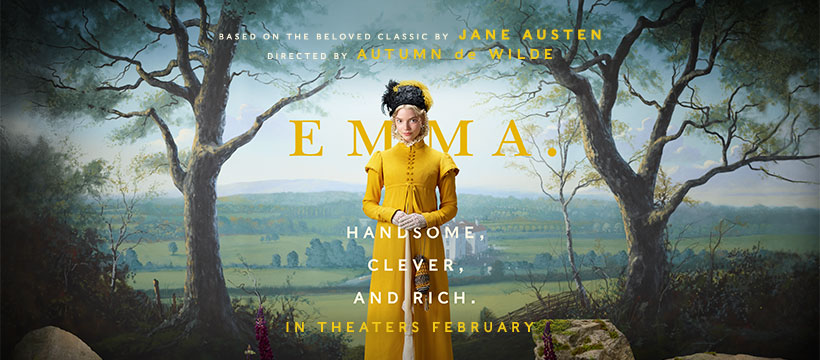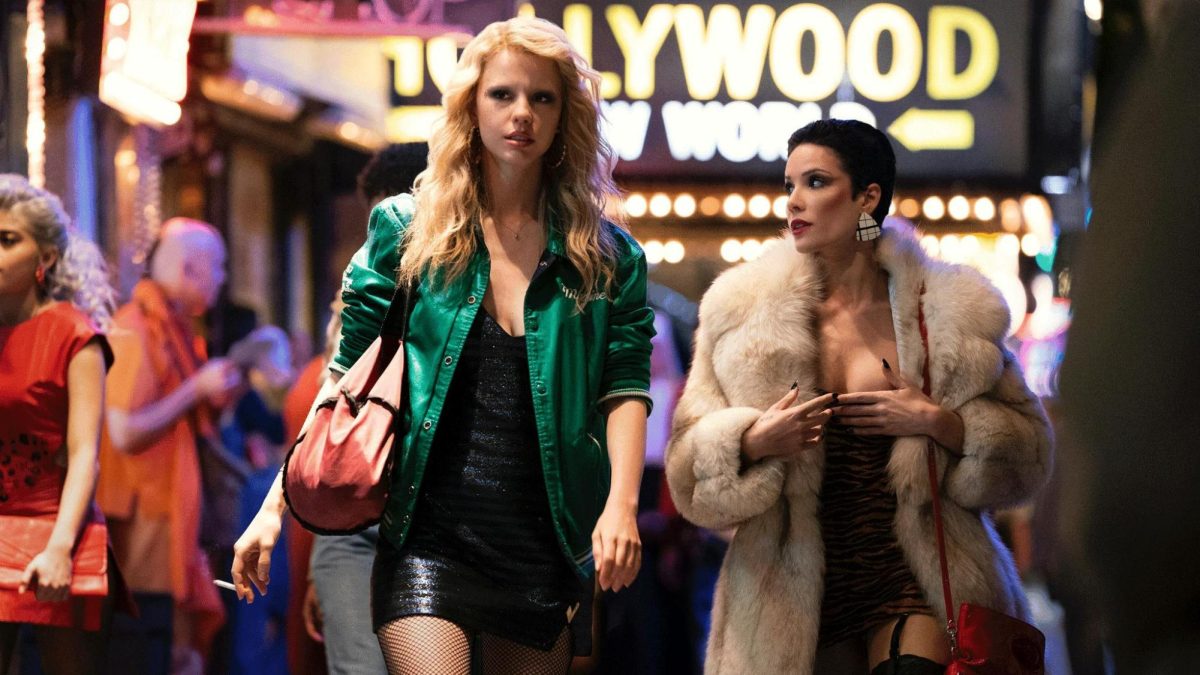Jane Austen’s classic novel “Emma” was first published in 1815 and has been a favorite for both television and film adaptations for decades. These adaptations have taken many forms: the 1996 version sees Gwyneth Paltrow don an eloquent British accent and play period dress up. The modern interpretation of the plot in “Aisha” sets the young woman playing matchmaker in New Delhi’s upper-class society. Lastly, and perhaps the most popular, Amy Heckering’s iconic 1995 coming of age interpretation with “Clueless,” starring Alicia Silverstone as the modern Emma who struggles with love, matchmaking and growing up in 1990’s Beverly Hills. Now, the film is returning to its 19th century roots, with legendary rock photographer Autumn de Wilde using this classic tale as her feature directorial debut and she does so with poise and charm.
Anya Taylor-Joy plays a young and mischievous Emma who has no intention of finding love for herself, but passes her time by trying to find it for others, including the rest of the ensemble cast; Josh O’Connor, Callum Turner, Mia Goth, Miranda Hart and Bill Nighy. Johnny Flynn plays Mr. Knightly, a landowner who, unlike the rest of local society, can see the flaws of Emma’s meddling ways and her notion of her own superiority – yet he admires and eventually falls in love with Emma.
Taylor-Joy is an enchanting Emma. She is bright, quick-witted and mischievous. Although the interactions between Flynn and Taylor-Joy sometimes feel a tad forced and not always believable, there is enough to make the film’s happy ending work. Taylor-Joy is captivating, adding her own take on the role and bringing a modern view of this beloved character. At times, the character’s arc can slip into the unexpected, but the overall essence of the beloved character is still prevalent. This may be thanks to the ensemble cast, who worked well to articulate the awkwardly toned humour which brings a new imagining into each of these famous characters.
Stylistically, the film is captivating. From the mis en scene, to the sets, exterior and outdoor locations and costumes, the aesthetic of the film is very pleasing to the eye. de Wilde is first and foremost a photographer. The cinematography evokes a light, pastel toned view of Austen’s novel. de Wilde has seemingly taken great inspiration from the likes of acclaimed directors Wes Anderson and Sofia Coppola by employing a light, airy setting with tones of sweet confectionary, but also a richness from the rich fabrics in both the costumes and sets. This makes “Emma.” not only a very pretty film to watch, but is purposefully curated to inform the audience about each character. Costume and set design play a valuable part in this film in order to make it stand out from previous adaptations, which plays a big role in what makes the film so captivating from start to finish.
The film’s use of humor allows for it to not be taken so seriously. By relying on popular conventions of awkward high society interactions, a satiric tone and an energetic soundtrack, the film conveys partial hysteria and partial period rom-com. Humor truly plays a pivotal role in making the latest imagining of Austen’s novel stand out. The film captures the conceited nature of Emma and Georgian high-class society’s obsession with marriage. This is not to say the humor is always necessary: sometimes it almost causes the film to stagger, but overall the film’s use of humor allows for the film to be distinguishable to the many previous adaptations.
“Emma.” is a thoroughly charming film that captures the virtues and ideals which Jane Austen first created over two centuries ago. Although it is not a perfect rendition of this classic tale, de Wilde’s attempt transports its audience to the regency age with all of its morals, ideals and expectations. It is hard to create a completely new concept when a story such as “Emma.” has previously been done several times in many different artistic interpretations. However, this latest rendition does so with a deeply pleasing aesthetic filter, which helps audiences to skim over the flawed aspects, and allows the audience to see the film for what it is: a light hearted period piece of delight.
“Emma.” is available to rent via streaming services and demand now.
Robyn Cowie can be reached at [email protected].



















